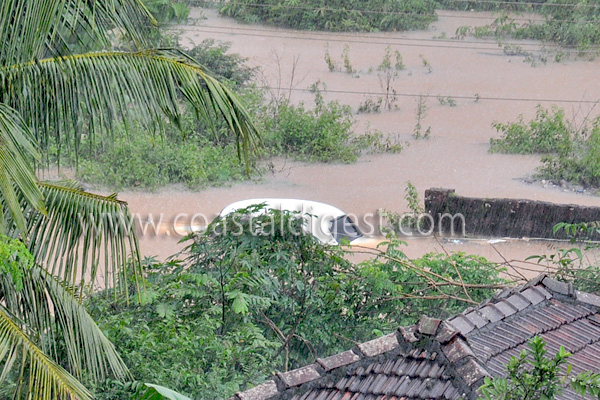
Mangalore / Udupi, August 8: The monsoon mayhem continued across the Coastal districts and some other parts of Karnataka on Wednesday. Low-lying areas were inundated on and crops were destroyed at many places following continuous rains since last few days.
As part of precautionary measures authorities on Tuesday shifted a few families to safe areas after the torrential rains inundated low-lying areas in Uppinangady, Banatwal and Subrahmanya and submerged many bridges across Dakshina Kannada.
As the Nethravathi river was flowing close to the danger mark in Panemangalore, Kallapu, and Bantwal, the district administration on Tuesday placed boats in strategic locations to rush them in any emergencies while Home Guards were kept on alert.
The Nethravathi was flowing at 8.1 metres as against the danger level of 8.5 metres, said Additional Deputy Commissioner K. Dayanand. The police said areas like Bastipadpu, Madaka, Jakribettu, and Bandribettu were inundated. There had been partial damage to seven houses in Bantwal. Mr. Dayanand said a boat has been placed in Bantwal as a precaution. Water continued to flow over the bridge in Hosmat near Kadaba cutting off the road connectivity.
The bridge across Kumaradhara river, connecting Gundya and Subramanya, and the Hosmata bridge, connecting Uppinangady and Subramanya, were under water on Tuesday, affecting vehicular traffic.
While rivers in twin districts are overflowing, rains have flooded both the bridges linking Subramanya and Uppinangady and Subramanya and Gunday, thus cutting off the road link to the temple town. On Tuesday, Kadaba received highest rainfall of 151.3 mm followed by Belthangady—141.6 mm, Puttur—134.9 mm, Sullia—115.4 mm, Bantwal—39.6 mm, Mangalore—12.6 mm.
Mangalore MLA U T Khader has urged the district administration to get ready to face flood situation in the region. Meanwhile, the water-level in almost all the drains were seen reaching the danger level. In fact, owing to the lack of storm water drains, rain water was seen flowing on the road at many places in Mangalore. At the same time, sea erosion too has been intensified in Hosabettu, Chitrapura, Mukka, Sasihithlu, Ullal and Kotepura.
In Udupi
B. Abhijin, Tahsildar of Udupi, said that there were reports of sea erosion at Bada Yermal village endangering a nearby road. After assessing the situation, boulders could be placed to prevent further erosion on Wednesday, he said.
Shankara Shetty (60), a daily wage worker, was washed away at Brahmasthana in Hebri on Monday night, when he tried to cross a road which was flooded by water in River Seetha. The body was found at Nadpalu on Tuesday.
Udupi district received 34.13 mm rainfall on Tuesday. Kundapur taluk has received highest of 51 mm rain followed by Karkala—35.8 mm and Udupi—15.6 mm.
A drain at Kabbinale was washed away in Mudradi near Hebri. With this, road connectivity between Kabbinale and Muniyala was cut off and movement of vehicles were disrupted. Mudradi Gram Panchayat President Chandrashekar Bayari and ZP member Mudradi Manjunath visited the spot and said that the work on repairing the drain will be taken up at the earliest.
Sauparnika, Sumana, Edamavinahole rivers have been overflowing. Flood water had entered Heroor, Badakere, Navunda, Maravanthe, Nada, Hadavu, Senapura, Hakladi villages. At few places, roads were filled with one to four feet water.
The residents of Kelabailu, Salbudam Hadavina Athikone, Movadi, Chikkali, Thoplu were seen depending on boat to reach their destinations. Many had deserted their houses and are taking shelter in their relatives houses in the region. Flood water had entered Sri Durgaparameshwari Temple in Kamalashile in Kundapur. Two boats have been kept ready on the banks of Sauparnika river to shift the people from low lying areas, in case of increase in the water-level in rivers. Kannada kudru, Theru kudru, Kurudweepa have been inundated.
Landslides
There were landslides at five different places in Charmadi Ghat. Mr. Dayanand said steps were taken to clear the road for traffic movement at the earliest.
Due to land slips between Yedekumari and Shrivagilu stations in Mysore division Train No 16518/16517 Kannur –Yesvantpur – Kannur express Via Mangalore Central and Train no.16516 Karwar – Yesvantpur Express via Mangalore Junction is cancelled between Mangalore Junction and yesvantpur on Tuesday and Wednesday.
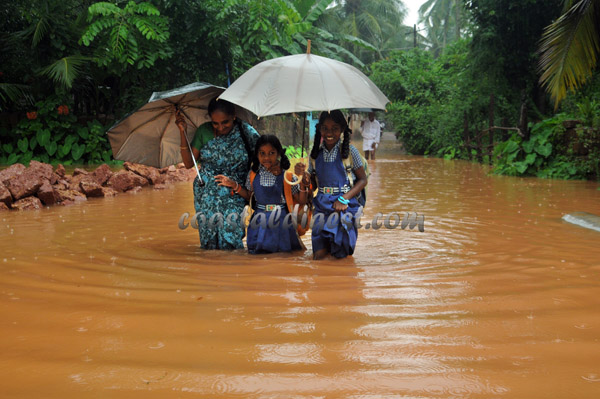
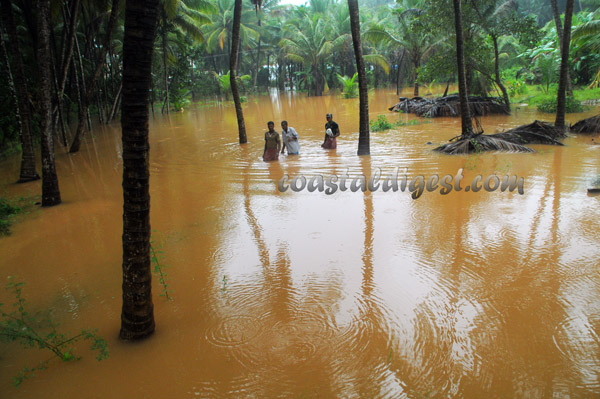

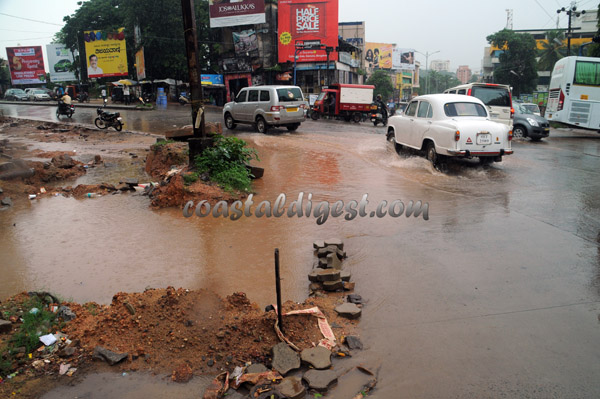
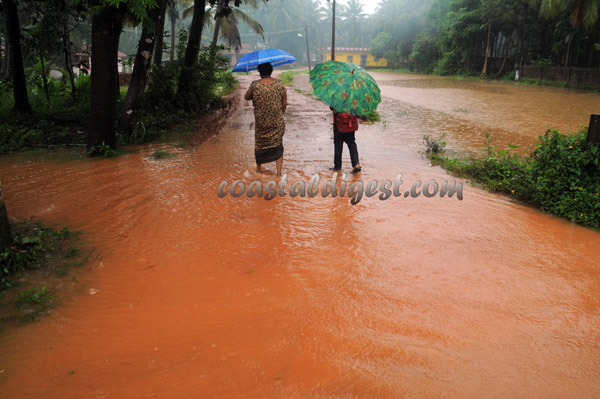
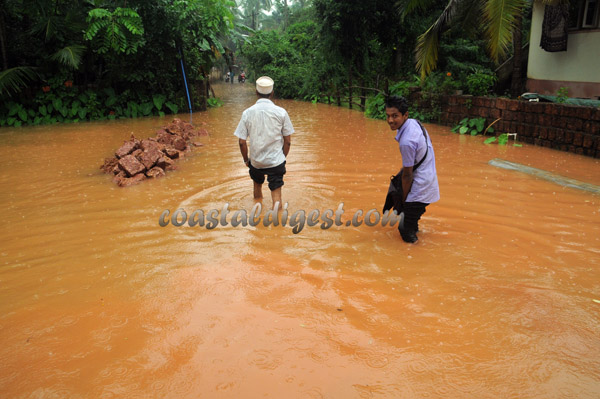
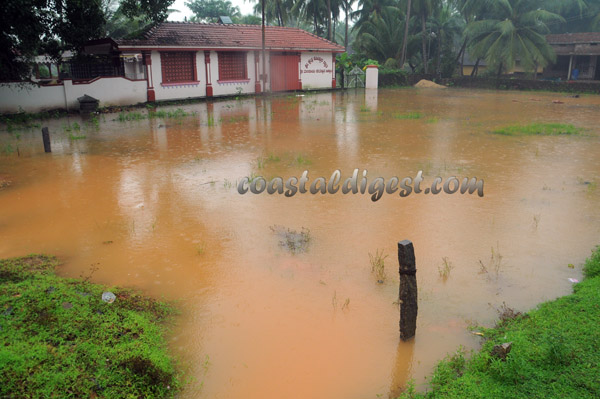
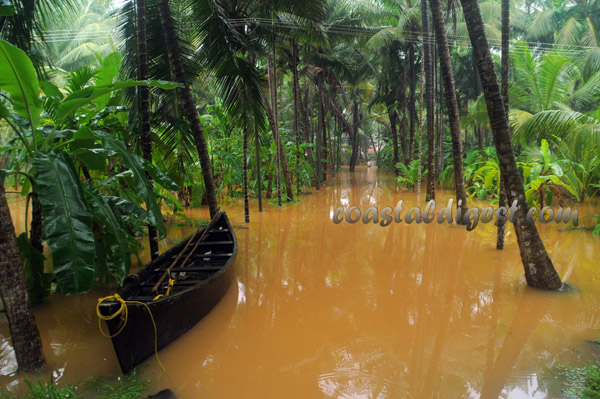
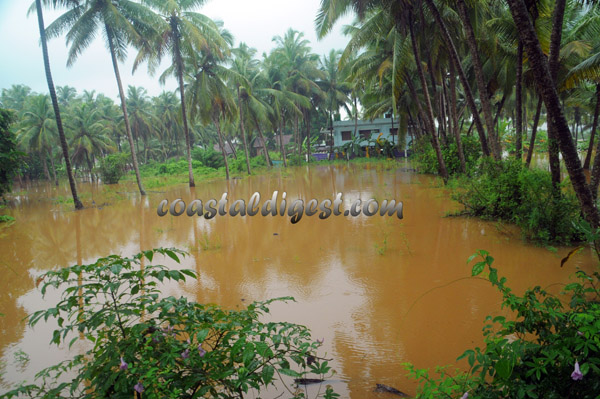

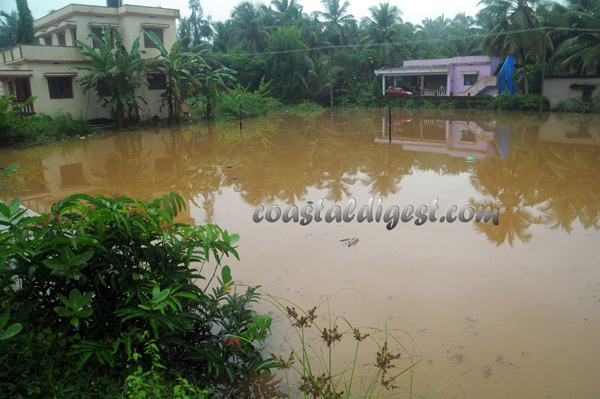
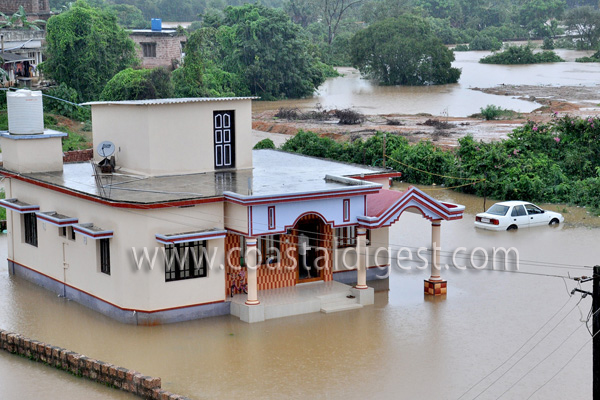
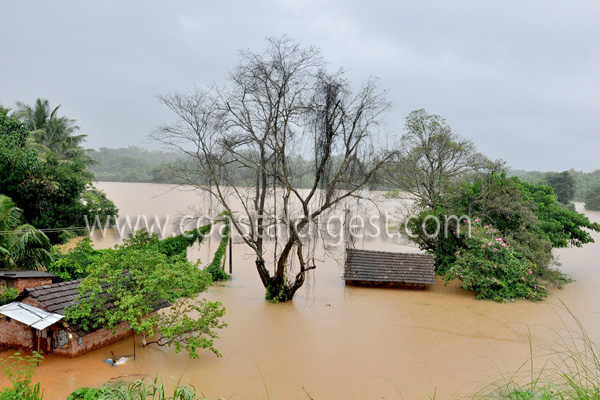
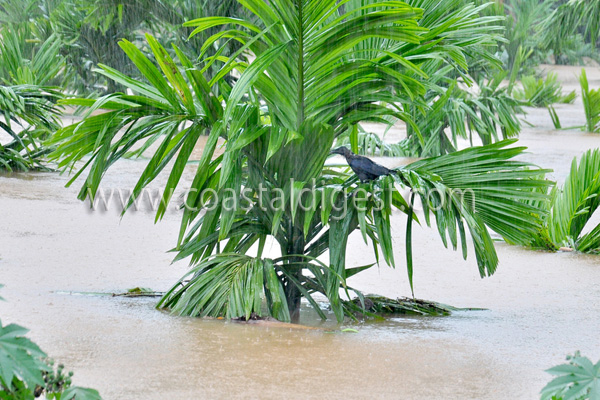
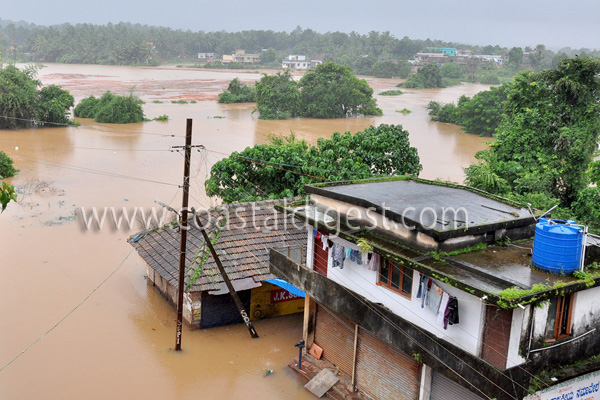
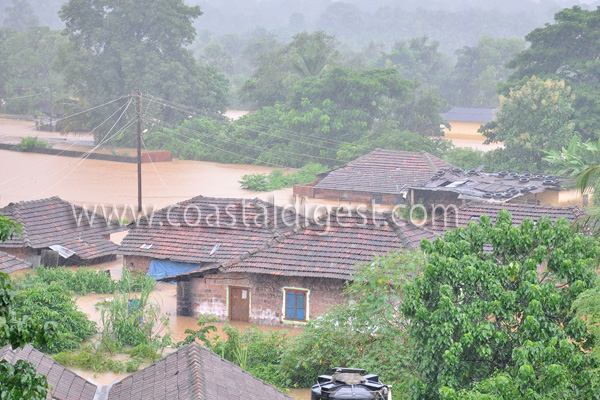
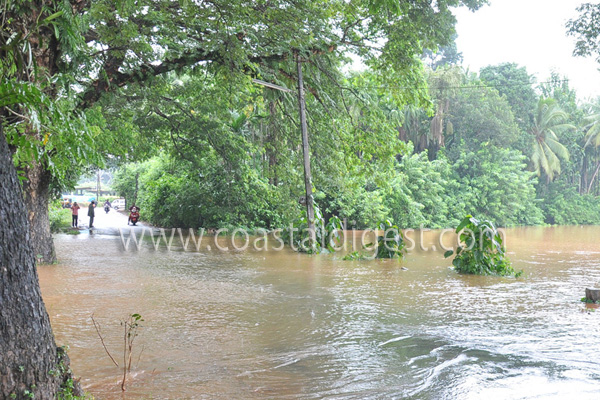

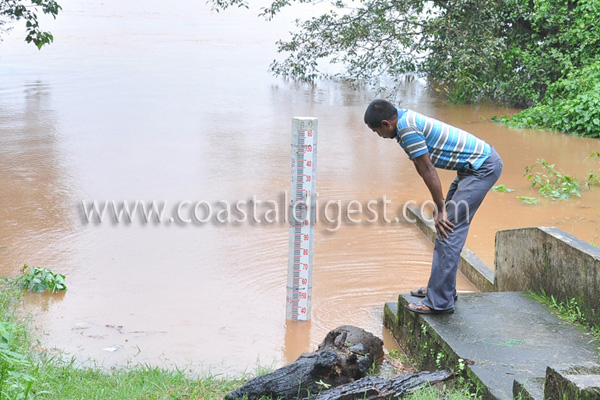
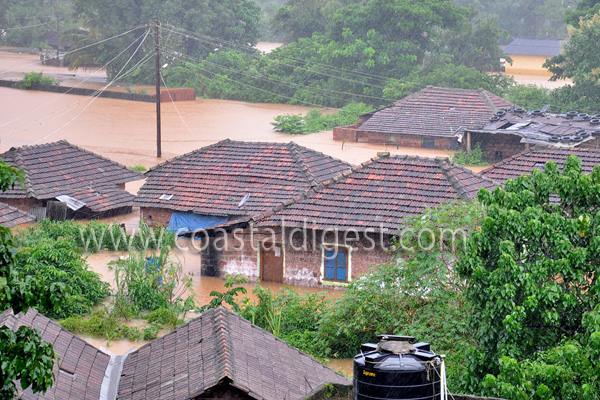

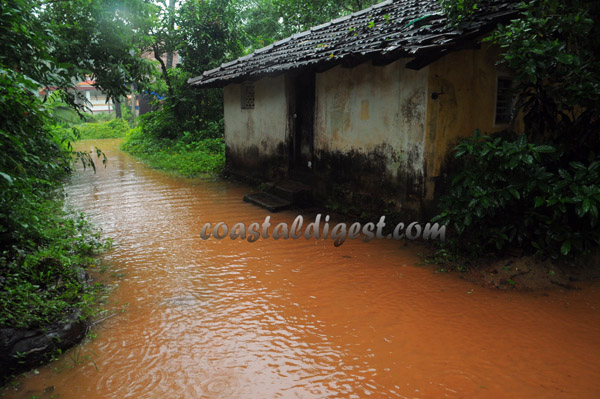
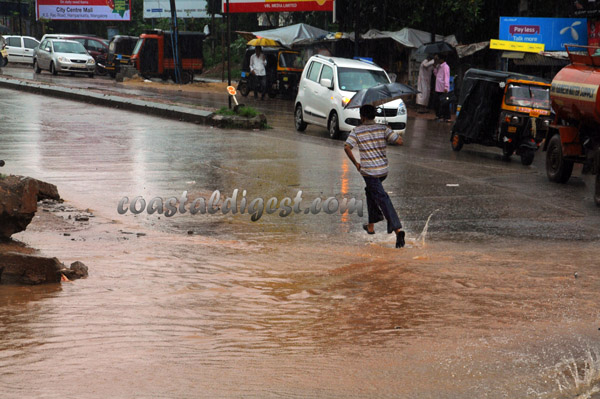




Comments
I like what you guys are up too. Such clever work and reporting!
Keep up the terrific works guys I've included you guys to our blogroll.
Also visit my blog :: my
advertising pays: https://www.youtube.com/watch?v=r_0wYnua2X4
Add new comment